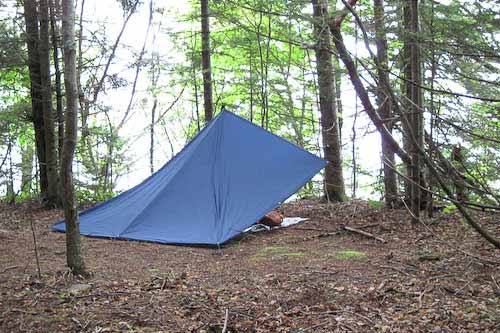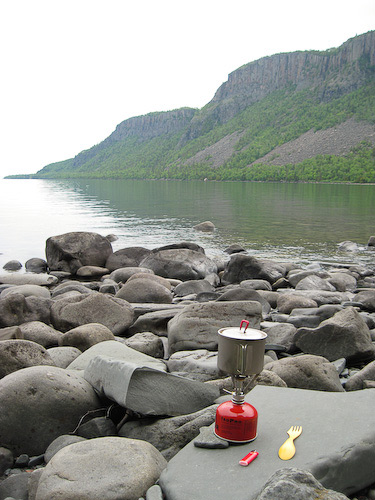The Maple Leaf Land
Being nearly eight hours of driving from the nearest major cities, Sleep Giant Provincial Park is understandably little-trafficked. I hadn’t been to Canada in a while, so last weekend I decided to check it out with a short backpacking trip.
The 94 mi2 park, named after the humanoid appearance of a large rock formation, occupies most of a large peninsula jutting into Lake Superior. Scenic Highway 61 along Minnesota’s north shore is the most direct way to get there, and since I like road trips almost as much as I like backpacking, that suited me just fine. The drive made me appreciate just how far north the park is located; for those familiar with the area, driving from Minneapolis to Silver Bay still found me less than half way to my destination.
Cross the border, go through Thunder Bay, hop on the Trans-Canada Highway for a stretch, and you’ll eventually reach the park. The nearly deserted park.
I encountered only a handful of mountain bikers and day hikers on the trail — no other backpackers. That’s a real shame. The park is well-maintained, the scenery is beautiful, and the wildlife is abundant.
I hiked for a while before deciding to stop. I was the only person in my chosen backcountry campsite.
I had a great view of the lake from my tarp lean-to.

My tarp home. Far better than a tent.
Ditto for dinner. I cooked out on the rocks, Isle Royale looming across the horizon in the distance. (Three years ago, I stood on Isle Royale and shot a video that looked out over the lake towards Sleeping Giant. Last weekend, I got the chance to gaze back.)

Cooking on the rocky shore of Lake Superior in Canada
Exploring the shore and staring into a pleasant campfire rounded out a relaxing day. Not even a light rain that night or the patter of deer running through the forest in the dark could spoil the experience. I mean, in the haze of interrupted sleep I first thought that the deer were bears, but that fear passed quickly.
The next day brought closure to my brief stay.
I’m not sure if I’ll ever return to Sleeping Giant, but I certainly wouldn’t mind going.

Recent Comments